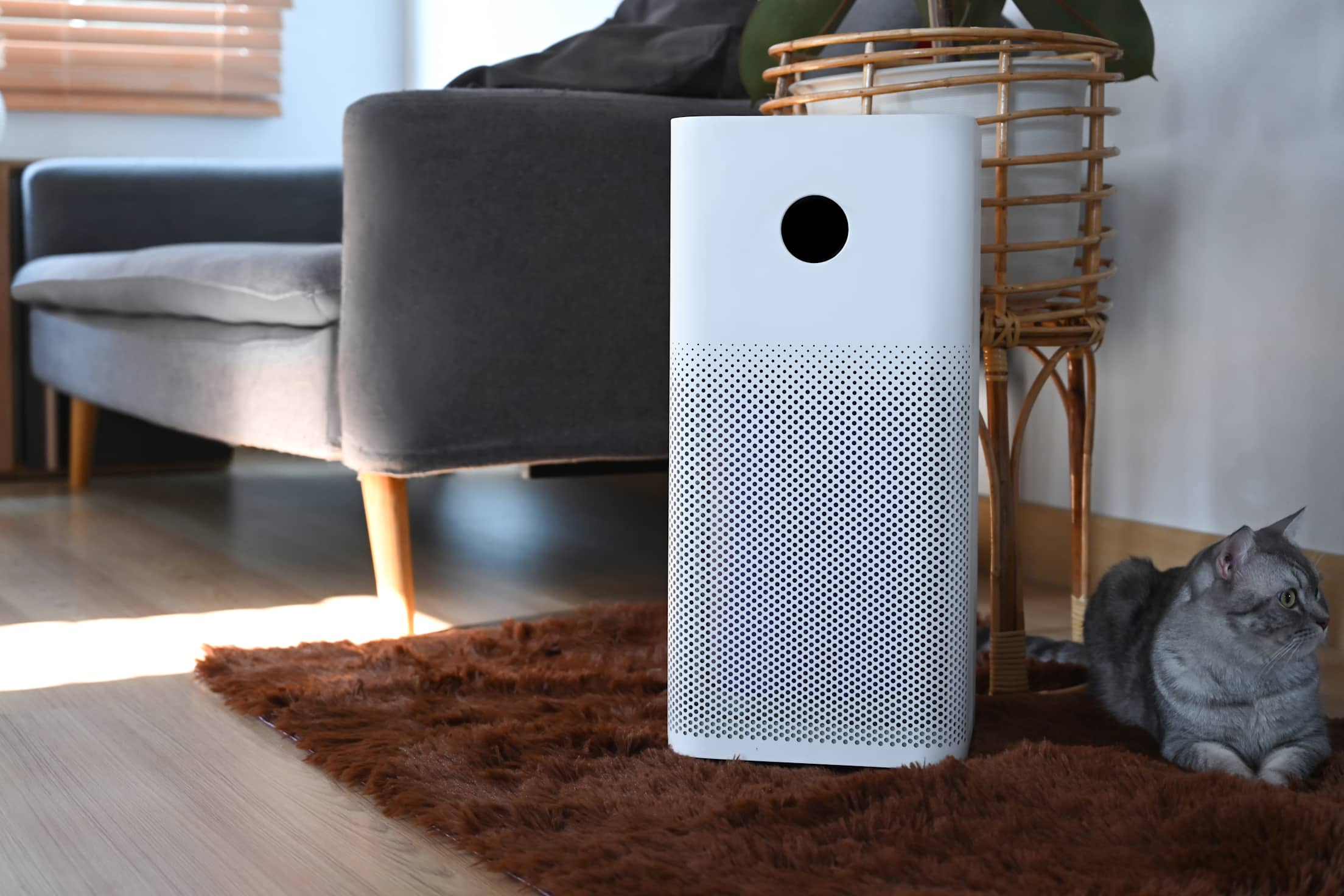
Do You Have These Often Overlooked Home Safety Essentials?
These 8 items will help you have peace of mind and a healthier home.

It’s all too easy to leave preparing for a disaster or emergency on the never-ending to-do list, but a few quick purchases and checks can go a long way to ensuring you’re ready should something go awry. These eight home safety items are often forgotten or overlooked, but they should be in every home.
Fire extinguisher(s)
U.S. fire departments respond to an estimated 343,100 home structure fires each year. That’s why every home should have at least one fire extinguisher stored where fiery fiascos are most likely to happen, such as the kitchen. For home use, experts recommend fire extinguishers with an ABC rating. This means the devices can put out Class A fires (cloth, trash, wood, and paper), Class B fires (flammable liquids like grease and gasoline), and Class C fires (electrical equipment).
The time to learn how to use a fire extinguisher is not when flames are leaping off of your Christmas tree. The U.S. Fire Administration encourages people to contact their local fire department, which can help with training and answer questions. Also make sure you know how to maintain your fire extinguisher. Some can be recharged, while others need to be replaced if the pressure falls too low. And some need to be shaken or pressure-tested at regular intervals.
A fire ladder and an escape plan
From the time your smoke alarm sounds, you may have as little as one or two minutes to escape your home safely, according to the National Fire Protection Association (NFPA). If your home is more than one level, a fire escape ladder could be your fastest and safest way of getting outside.
Each second-floor bedroom (including children’s rooms) should have a ladder stored in or near the window so no one has to hunt for it in an emergency. Practice setting up your ladder from a first-floor window, and if you have kids who are capable of doing so, practice with them so they can set up the ladder themselves. Also run through your family’s home escape plan regularly. The National Fire Protection Association and the Department of Homeland Security both offer tips on designing an effective plan.

Flashlight or emergency lights
Storms, hurricanes, power outages, or a short circuit can all cause the lights to go out. And though many of us use the flashlight feature on our smartphones, in an emergency you’ll want to conserve your phone’s battery. So, it’s wise to have at least one battery-operated or rechargeable flashlight or camping headlamp stored in a place where you can easily find it in the dark.
Carbon monoxide and smoke alarms
Your risk of dying in a home fire goes down 55 percent if you have a working smoke alarm. The NFPA recommends purchasing a dual sensor alarm. These devices have both an ionization sensor, which is more responsive to fires with visible flames, and a photoelectric sensor, which is better at detecting fires that smoke and smolder.
If your home has fuel-burning equipment—such as a gas fireplace or an oil or gas boiler, furnace, or water heater—the NFPA suggests installing combination smoke and carbon monoxide alarms. These detect the odorless, invisible, deadly gas that’s emitted when fuels such as gasoline, natural gas, and propane burn incompletely.
Make sure you properly install alarms on the ceilings of bedrooms and living spaces. Test your alarm monthly, and if it’s battery operated, replace the batteries at least once a year. Smoke alarms should be replaced at least every 10 years, whereas combination smoke and carbon monoxide alarms should be replaced at least every seven years.
A home security system
According to a survey of more than 400 people convicted of burglary, 60 percent said that if they discovered a house had a burglar alarm, they would immediately move on and target a different house. Home security systems are effective crime deterrents, and they come with a bonus: hidden financial savings. Some homeowners insurance companies offer a discount of 5 to 20 percent on your premiums if you have a professionally monitored system, and some high-tech home security systems are linked to smart lights and thermostats that can curb energy bills.

Air filters
When we think of pollution, we might picture a smear of smog and dust on the distant horizon. But that smog and dust is also in your home, potentially along with pollen, smoke, dander, pesticides, and volatile organic compounds spewing out of everything from your paint to your cleaning supplies to your computer system. Air filters may help protect you from these pollutants and the conditions they can trigger, including asthma, respiratory irritation, and cancer.
When choosing an air filter to place in your air-conditioning or heating system, the U.S. Environmental Protection Agency (EPA) recommends looking for a Minimum Efficiency Reporting Value (MERV) of 13 or higher. These filters remove at least 50 percent of the extremely small particles that can lodge deep in your lungs.
Additionally, you may want a standalone filter to clean air in rooms you spend a lot of time in. The EPA suggests purchasing a portable air cleaner with an activated carbon filter to remove harmful gasses as well as particles. Select a device with a clean air delivery rate (CADR) that is proportional to the size of the room.
Multipurpose wrench
Gas leaks can occur in your home due to faulty appliances, corrosion, earthquakes, and breakages to main lines. If you smell a gas leak (or recognize other signs of a leak such as a hissing sound coming from a gas appliance), you can shut off your gas with a 12-inch or larger adjustable wrench. You can also use a multi-purpose wrench to turn off your main water line, which is a good idea if you’re leaving your home for an extended period of time. With the water off, you can have peace of mind that there won’t be damage from leaking supply lines, frozen pipes, or dripping water heaters.
Easily visible house numbers
If a loved one is in the midst of a health crisis or your house is on fire, emergency responders need to find your address as quickly as possible. It’s essential that your house numbers are visible from the street at night and in smoky conditions. The numbers should be at least 4 inches tall, displayed on a contrasting background, and either reflective or illuminated.
AAA Members save up to $60 per year on AAA Smart Home Security Monitoring.